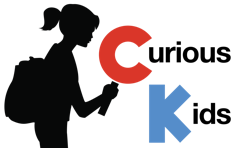Curious Kids: Why do we have bones?
- Written by Emma Duncan, Professor of Medicine, Faculty of Medicine, The University of Queensland
This is an article from Curious Kids, a series for children. The Conversation is asking kids to send in questions they’d like an expert to answer. All questions are welcome – serious, weird or wacky!
My name is Jake and I’m four and a half. I live in Perth, WA. I would like to know why we have bones. Thanks – Jake, age 4.5, Perth.
Thank you for your excellent question, Jake.
As you know, humans have lots of bones - the flat bones that form our skull, curved bones that form our chest, long bones in our arms and legs, stacked bones in our backbone, small bones in our hands and feet, and tiny bones in our ears.
Why do we have all these bones? And why are they of so many different shapes and sizes? After all, some animals don’t have any bones at all (like jellyfish) and others just have a hard layer on the outside of their body (like crabs).
But along with all the other animals who do have bones - fish, amphibians, reptiles, birds, and mammals – we have a skeleton, because it helps us to survive and to live active and healthy lives. And our bones help us do this in many different ways.
First, our bones protect our insides. Our skull wraps around our brain like a helmet. Our cage of ribs protects our heart and lungs - the spaces in between the ribs allow our chest to get bigger and smaller with each breath. Our kidneys are tucked up under the ribs at the back; our liver is under the ribs on the right and our spleen under our ribs on the left. All these organs are kept safe by the hard armour of our bones.
Read more: Curious Kids: How do x-rays see inside you?
Second, our bones mean we can move. Our muscles attach onto our bones using special tough tissue called tendons. When a muscle squeezes, it pulls on the tendon, and the tendon then pulls on the bone – and that’s how we move!
Big muscles pull big bones, like our arms and legs, so that we can walk and run and lift and carry. Our smaller muscles and bones help us with smaller movements - little tricky jobs like doing up a button or writing with a pencil. If you stand in your bare feet and close your eyes, you can feel all the small muscles and bones in your feet moving around to help you keep your balance. The bones and muscles of our spine help us stand up straight, and to bend from side to side and to twist to the left and the right.
Third, our bones hold our bone marrow. This is where we make the tiny particles that make up our blood - the red blood cells that carry oxygen, the white blood cells that help fight germs, and the platelets that help you stop bleeding if you accidentally cut yourself.
Our bones also hold lots of calcium. Partly this is what makes bone so hard - but calcium is also very important for the electricity of our heart and our muscles and many other cells. Our bones ensure that the calcium level in our bloodstream is kept very steady.
Read more: Curious Kids: Where did the first person come from?
Some bones have very special jobs. For example, our jaw bones hold our teeth firmly in place, so that we can chew. Our ears have very special tiny bones that transmit sound so that we can hear. These are the hardest bones in our body!
So you can see our bones have all sorts of different jobs that help us to live.
Our bones grow and change over our whole life. You already know that children grow taller as they get older - this is because your bones are growing longer. But even after you have stopped growing taller, your bones will keep on growing in other ways. When we use our bones, they grow stronger and tougher.
This is why exercise is so important for our bones. Walking, running, jumping, skipping – all these things help our bones grow strong, to give us a healthy skeleton for life.
Hello, curious kids! Have you got a question you’d like an expert to answer? Ask an adult to send your question to us. You can:
* Email your question to curiouskids@theconversation.edu.au * Tell us on Twitter by tagging @ConversationEDU with the hashtag #curiouskids, or * Tell us on Facebook
 CC BY-ND Please tell us your name, age and which city you live in. You can send an audio recording of your question too, if you want. Send as many questions as you like! We won’t be able to answer every question but we will do our best.
CC BY-ND Please tell us your name, age and which city you live in. You can send an audio recording of your question too, if you want. Send as many questions as you like! We won’t be able to answer every question but we will do our best. Authors: Emma Duncan, Professor of Medicine, Faculty of Medicine, The University of Queensland
Read more http://theconversation.com/curious-kids-why-do-we-have-bones-90246



















